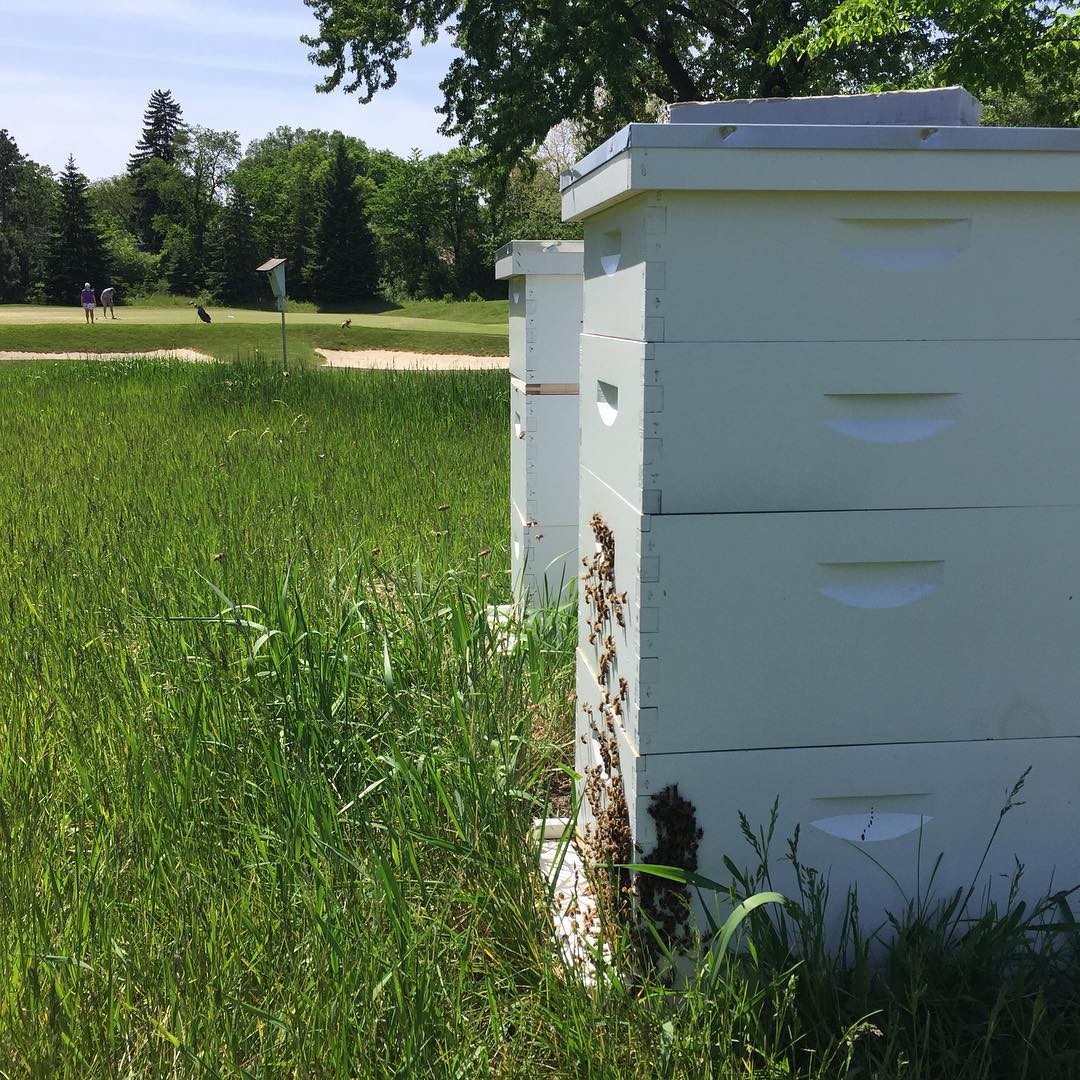It is critically important, and at the heart of what it means to be a sustainable golf course, to provide a healthy environment for human and non-human inhabitants of the course. Developing a strategy for protecting pollinators must be addressed. Reducing, and potentially eliminating, the need for chemical applications on the course will often benefit pollinators. Planning a planting plan that addresses the flowering times of plants will provide pollinators with forage year round. Additionally, keeping honeybees on a golf course is a great opportunity for a mutually benefitial relationship. Honeybees provide valuable pollination services (a significant societal value) as well as provide the valuable resource of honey. In addition to these services, honeybees are a great educational tool. People are curious about honeybees and often engage in environmental stewardship based on their peaked interest in protecting pollinators.
UMN Bee Lab
For more information on University of Minnesota research focused on honeybees and pollinators visit the website for the University of Minnesota Bee Lab and Bee Squad.
Bees and Golf in the News
See how golf courses in Illinois are taking action on protecting honeybees and pollinators.
An increasingly common site. Image: Parker Anderson

